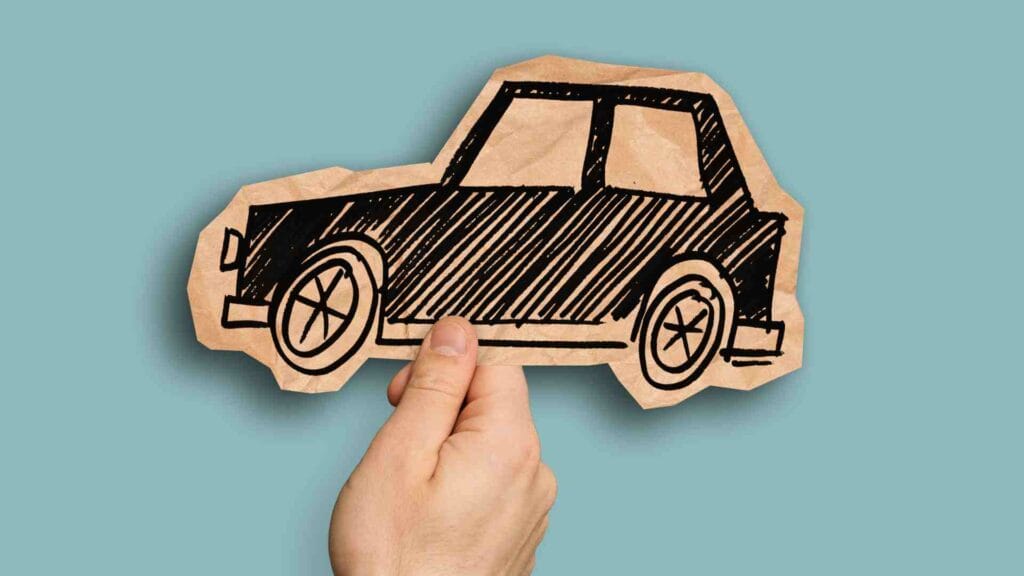The Best and Worst Times to Buy a Used Car in Canada
In the ever-fluctuating world of automotive sales, timing can be everything when it comes to buying a used car in Canada. While there’s never a bad time to start researching and preparing for your next car purchase, certain periods throughout the year can offer significant advantages—or disadvantages—to the savvy used car shopper.
Understanding these optimal buying windows and less favourable times can help you save hundreds of dollars on your next car purchase. This article will look at the best and worst times to buy a used car in Canada, as well as helpful tips to help you get the best bargain possible.
Read More:
Selling Your Used Car: Maximizing Your Car’s Value in Toronto’s Competitive Market
Expert Tips to Increase Your Used Car Trade-In Value
Selling Your Used Car in Ontario: How To Do It Right
The Best and Worst Times to Buy a Used Car in Canada

Best Times to Buy a Used Car in Canada
The Golden Months: September through December
One of the best times to shop for a used car falls within the last four months of the year, particularly from September through December. During these months, dealerships are eager to offer attractive year-end clearance deals because:
New model releases: As next year’s new car models start rolling into dealerships in late summer and early fall, the used car market sees a flood of trade-ins. This increasing inventory puts downward pressure on used car prices.
Year-end sales goals: Both automakers and dealerships are eager to hit their annual sales targets during these months. This motivation often translates into more aggressive pricing and promotional offers on both new and used vehicles.
Holiday season promotions: The heavy marketing push during the holiday season isn’t just for new cars. Used car dealerships also ramp up their efforts to move inventory during this time, potentially leading to better deals for used car buyers.
The New Year Opportunity: January and February
The winter season, particularly January and February, can be an excellent time to find deals on used cars. While the end-of-year period can be considered the best time for used car buying, don’t underestimate the possible savings that may be discovered in the first few months of the new year. January and February might provide special benefits for used car buyers due to:
Leftover inventory: Dealerships that didn’t meet their year-end sales goals may be particularly motivated to clear out remaining inventory from the previous year. On the other hand, during this slower period, dealerships may be more willing to offer discounts to boost sales.
Tax refund season: As tax season approaches, some dealers may offer special promotions or financing options in anticipation of buyers having extra cash from tax refunds.
Winter silence: In many locations in Canada, car sales remain sluggish during the winter months. Harsh weather conditions might discourage casual shopping, giving serious buyers more bargaining power.
End of Each Month & Holiday Weekends
Regardless of the season, the end of any month can be a strategic time to buy, because:
- Sales representatives often have monthly quotas to meet
- Dealerships may offer additional incentives to close deals and reach targets
Additionally, holiday weekends throughout the year can present good opportunities for used car purchases. During these holiday weekends, dealerships often run special promotions and sales events to attract customers:
Victoria Day (May)
Canada Day (July)
Labour Day (September)
Thanksgiving (October)
However, while holiday sales events are heavily promoted, they don’t always offer the best deals on used vehicles. Increased customer flow and marketing excitement can result in inflated pricing rather than true bargains.
Times to Avoid
While there are optimal times to buy a used car in Canada, there are also periods when it’s best to hold off on your used car purchase if possible:
Early Spring: Tax Refund Rush
As winter melts and temperatures rise, the used car market begins to heat up. This moment offers purchasers both opportunities and challenges. Because the period immediately following tax refund season (usually March through April) often sees an increase in car-buying activity.
Many people upgrade their vehicles in spring, leading to a new rush of trade-ins in dealership showrooms. Increased demand can raise prices and weaken individual buyers’ bargaining power.
Summer: Peak Season
Summer is traditionally the busiest season for car buying, which can make finding great deals on used vehicles more challenging. With better weather and more free time, many buyers flood the market, driving up used car prices.
Increased demand can lead to a smaller selection, particularly for popular models. With strong demand, dealers may be less likely to offer substantial price reductions or promotions.
Additional Factors to Consider
New Model Releases
When new models are released, usually in late summer or early fall, dealerships may be more motivated to sell older models, including recent trade-ins. Typically, in the weeks immediately surrounding new model releases for popular vehicle lines, used car prices for recent model years of that same line may temporarily spike. If you’re interested in a particular model, it’s worth researching its typical release schedule and planning your purchase accordingly.
Discounts on current-year models
Dealers often reduce prices on the outgoing year’s models to make room for new inventory. This can indirectly pressure used car prices downward. As buyers take advantage of new car deals, there is sometimes an increase in trade-ins, which boosts used car inventory and may result in more competitive pricing.
Seasonal Considerations for Specific Vehicle Types
Convertibles and Sports Cars
Best time to buy: Late fall or winter
Why: Demand typically decreases as the weather gets colder.
SUVs and All-Wheel Drive Vehicles
Best time to buy: Late spring or summer
Why: These vehicles are less in demand during warmer months.
Family Vehicles
Best time to buy: August or September
Why: New model year vehicles start arriving, potentially increasing the supply of traded-in family cars.
Tips for Getting the Best Deal When Buy a Used Car in Canada
While timing your purchase can lead to significant savings, it’s just one aspect of smart used car shopping. Consider these additional tips to maximize your chances of getting a great deal when buying a used car in Canada:
Do your research: Before visiting dealerships, do some research on the makes and models you’re interested in. Thoroughly research the makes and models you’re interested in, including common issues, maintenance expenses, and fair market value.
Get pre-approved financing: Secure financing choices before visiting the dealership to improve your negotiating position. Having pre-approved financing gives you more negotiating power and helps you stick to your budget.
Consider certified pre-owned vehicles: They usually come with extended warranties and have been thoroughly inspected, making them potentially better value in the long term.
Be flexible: Having some flexibility in terms of manufacturer, model, or features can lead to more options for getting a good deal.
Use online tools: Leverage online car-buying platforms and comparison tools to expand your search and determine fair market pricing.
Be Prepared to Walk Away: Don’t feel pressured to make a purchase if the deal doesn’t meet your expectations.
While there’s never a “perfect” time to buy a used car in Canada, understanding market trends and timing your purchase strategically can lead to significant savings. By focusing your search during the latter months of the year, being open to early-year opportunities, and avoiding peak buying seasons, you’ll position yourself for the best possible deals.
Remember, however, that timing is just one factor in the used car buying process. Thorough research, careful inspection, and smart negotiation tactics are equally important in ensuring you drive away with a reliable vehicle at a fair price. With patience, preparation, and a strategic approach to timing, you’ll be well-equipped to navigate the used car market and find the perfect vehicle for your needs and budget.
For more information on how to buy or sell a vehicle in Ontario, visit YST Auto Sales.
For a hassle-free experience, consider YST Auto Sales, your trusted used car dealer. Selling or trading in a used car in Ontario with YST Auto Sales is quick and easy. Simply visit our Sell Your Car page and enter your car’s details to get an instant cash offer within minutes.
Unlike selling privately through online marketplaces, YST Auto Sales eliminates listing fees and time-wasting negotiations and skips the hassle of meeting buyers. You will receive a transparent cash offer upfront. YST Auto Sales offers pick-up right at your door or a convenient drop-off location.
If you’re looking to upgrade, use your old car as a trade-in for a new one from our extensive selection. YST Auto Sales will even handle the simultaneous pick-up and drop-off for both vehicles. This also saves your valuable time and saves more on your new car—a win-win!

